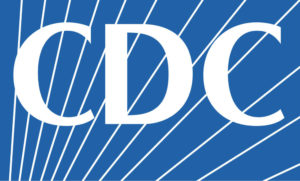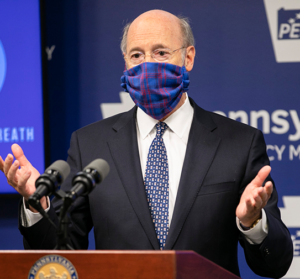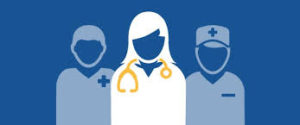COVID-19 Update: Wednesday, December 9
The following is the latest COVID-19 information from the state government as 3:00 p.m. on Wednesday, December 9.
 Governor Wolf
Governor Wolf
Governor Wolf has tested positive for COVID-19. It was diagnosed in a routine test and he is quarantining at home. See a news release from the governor’s office with further information.
Department of Health
The Department of Health has issued guidance to hospitals on how to identify and report COVID-19 outbreaks originating within the facility. The department wants this guidance to be used to supplement other relevant guidance documents and to guide the implementation of public health expectations for hospitals.
Key messages included in the guidance:
- COVID-19 surveillance procedures must be outlined via written policy and implemented in a way that can systematically identify clusters.
- Outbreak Definition:
- ≥2 cases of confirmed COVID-19 in a patient seven or more days after admission for a non-COVID condition, with epi-linkage; or
- ≥3 cases of confirmed COVID-19 in HCP with epi-linkage AND no other more likely sources of exposure for at least two of the cases.
- Outbreaks fitting the definition outlined in this advisory must be reported through the Pennsylvania Patient Safety Reporting System (PA-PSRS) as an infrastructure failure. This does not replace reporting of COVID-19 cases or capacity data in other state or federal systems.
Resources to Consult
Pennsylvania Department of Human Services
Pennsylvania Department of Health
Centers for Disease Control and Prevention
 The Department of Health announced that beginning on Thursday, December 10, regional drive-through and indoor walk-in COVID-19 testing clinics will be held in Clinton, Delaware, Greene, Warren, and Wyoming counties. Counties with new, temporary state-sponsored testing sites will change each week over the next 11 weeks so that 61 counties will eventually be reached by these pop-up testing sites. Go
The Department of Health announced that beginning on Thursday, December 10, regional drive-through and indoor walk-in COVID-19 testing clinics will be held in Clinton, Delaware, Greene, Warren, and Wyoming counties. Counties with new, temporary state-sponsored testing sites will change each week over the next 11 weeks so that 61 counties will eventually be reached by these pop-up testing sites. Go  To provide a greater number of people with convenient, limited-contact access to flu shots, the Department of State has suspended the age restriction that limits intern-administered flu shots to those ages nine and older. Instead, pharmacy interns may temporarily administer any age-appropriate influenza vaccination to children three years of age and older. Also, to increase access to COVID-19 vaccines as they become available, this waiver authorizes pharmacy interns to administer COVID-19 vaccinations to persons who are at least 18 years of age but only under the direct, immediate, and personal supervision of a licensed pharmacist who holds an active authorization to administer injectable medications. See the
To provide a greater number of people with convenient, limited-contact access to flu shots, the Department of State has suspended the age restriction that limits intern-administered flu shots to those ages nine and older. Instead, pharmacy interns may temporarily administer any age-appropriate influenza vaccination to children three years of age and older. Also, to increase access to COVID-19 vaccines as they become available, this waiver authorizes pharmacy interns to administer COVID-19 vaccinations to persons who are at least 18 years of age but only under the direct, immediate, and personal supervision of a licensed pharmacist who holds an active authorization to administer injectable medications. See the  CMS has posted information about
CMS has posted information about  HHS has released new hospital COVID-19 capacity data at the facility level. Previously released data about hospital capacity that had been released was aggregated at the state level but this new, more granular data release aggregates daily hospital reports into a “week at a time” picture while providing a view of how COVID-19 is affecting hospitals and communities. See
HHS has released new hospital COVID-19 capacity data at the facility level. Previously released data about hospital capacity that had been released was aggregated at the state level but this new, more granular data release aggregates daily hospital reports into a “week at a time” picture while providing a view of how COVID-19 is affecting hospitals and communities. See  In its letter, SNAP asked Congress for:
In its letter, SNAP asked Congress for: On Tuesday, December 8 at noon (eastern) the FDA will host a webinar on its enforcement policy for sterilizers, disinfectant devices, and air purifiers during the COVID-19 pandemic as part of its series on respirators and other personal protective equipment for health care personnel use during the pandemic. Go
On Tuesday, December 8 at noon (eastern) the FDA will host a webinar on its enforcement policy for sterilizers, disinfectant devices, and air purifiers during the COVID-19 pandemic as part of its series on respirators and other personal protective equipment for health care personnel use during the pandemic. Go  The Philadelphia Inquirer
The Philadelphia Inquirer  The CDC has updated its
The CDC has updated its  The GAO has examined the federal response to the COVID-19 public health emergency, describing the impact of the pandemic and the government’s response to it while identifying shortcomings in that response and recommending ways to address those shortcomings. Learn more from the GAO report “
The GAO has examined the federal response to the COVID-19 public health emergency, describing the impact of the pandemic and the government’s response to it while identifying shortcomings in that response and recommending ways to address those shortcomings. Learn more from the GAO report “ Governor Wolf/Department of Health
Governor Wolf/Department of Health Pennsylvania’s number of COVID-19 cases today surpassed 321,000.
Pennsylvania’s number of COVID-19 cases today surpassed 321,000. The Department of Health has released its “
The Department of Health has released its “ The Provider Relief Fund web page has been
The Provider Relief Fund web page has been  The CDC has published a
The CDC has published a  The Department of Health updated its
The Department of Health updated its  The number of people currently hospitalized with COVID-19 has doubled since late last month.
The number of people currently hospitalized with COVID-19 has doubled since late last month.